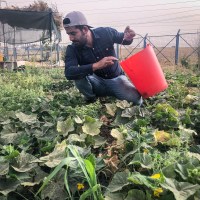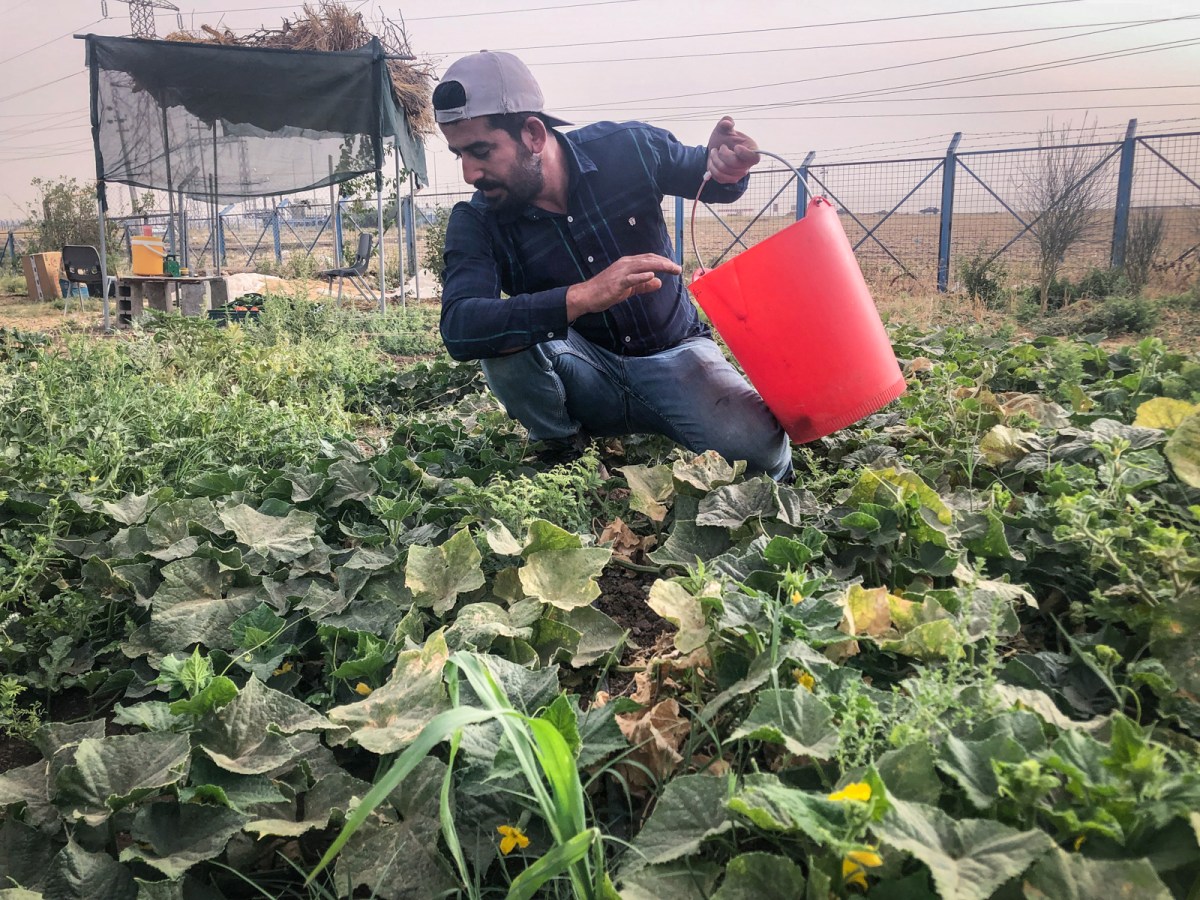This is World Day to Combat Desertification and Drought. It’s an issue that grows more serious with each passing season. For Yaser in Iraq, his family in Syria, and farmers we’ve supported across the Middle East, this isn’t a future problem. It’s impacting their families today.
What does one do when the crops, the people, and the animals need rain? In a 600-meter-wide village in northern Syria surrounded by farmland and just 3.5 kilometers from the Turkish border, farmers rely on the timeliness of the rain to sustain their crops. Yaser, our colleague who works the land on our farm in Iraq, has a father who farms a large area just outside their village. When Yaser has questions about how to plant tomatoes, what season to graft a tree, what to do about cucumber worms, or what crops to grow in drought he calls his father. Yaser is a refugee from Syria, so he can no longer ask for advice over breakfast.
Due to climate change and the destruction of forests, the recent unpredictability of the rain in Syria, Kurdistan, and across the middle east has had a devastating impact on crop production in recent years. This year many Kurdish farmers that have exclusively planted wheat have lost their entire crop due to the two-year drought. The bread needs rain, and the rain has not come. Thousands of acres of food were lost to decreasing rainfall and a decrease in water access from higher in the Tigris and Euphrates watersheds. Aquifer levels are dropping due to excessive use, poor management of surface water, and decreasing rain. Fresh water sources (aquifer and surface water) are also being contaminated due to industrial agricultural practices, poor infrastructure, and minimal environmental education. Higher temperatures have resulted in high evaporation rates, thus increasing salinization. This is one of the biggest challenges to farmers as salinization inhibits plant growth and plant reproduction.
As we have seen in many nations, increased climate instabilities heighten systemic instabilities in conflict and post-conflict nations. According to the IPCC (International Panel on Climate Change), Iraq is fifth on the list of countries most impacted by climate change. For relief to come, a big change must occur. Talk is happening about increasing desalination plants that will turn ocean water into fresh water. While these plans will help mitigate some of the water shortages, there is still a great need for immediate, small, and locally appropriate solutions for farmers.
This is where the practices at our farm make a difference. We’re piloting the demonstration of rain-water harvesting, soil coverage, perennial systems, top-soil regeneration, earthworks, grey water treatment systems (still in the planning phase), and integrated pest management to show simple practices that can be replicated by farmers to increase their water access and mitigate rising temperatures. Many of these practices are traditional, and part of the success of Yaser’s family farm across generations. They are practices that we are working to improve and spread locally in Iraq, as we join the farmers in praying for more rain.
“The bread of the rain,
Yaser
the bread of the rain,
our bread wants it to rain,
and we want wheat,
and our cow wants grass.”
“I am from a village. It is a small village in Syria,” said Yaser. “We had an old tradition in the village when the rain was late. Me and two or three of my friends went out in rain clothes. We used a piece of leather to visit all of the houses in the village and call out “The bread of the rain, the bread of the rain, our bread wants rain and we want wheat and our cow wants grass”. People would pour water [onto the leather]. At my friend’s house, he used to spray us with water until the water was falling from under us. He also gave us some food. This was one of our beautiful traditions.”
Pilot projects like our farm in Iraq, designed specifically to survive and thrive in an increasingly dry landscape, help local farmers strategize solutions for today and tomorrow.


